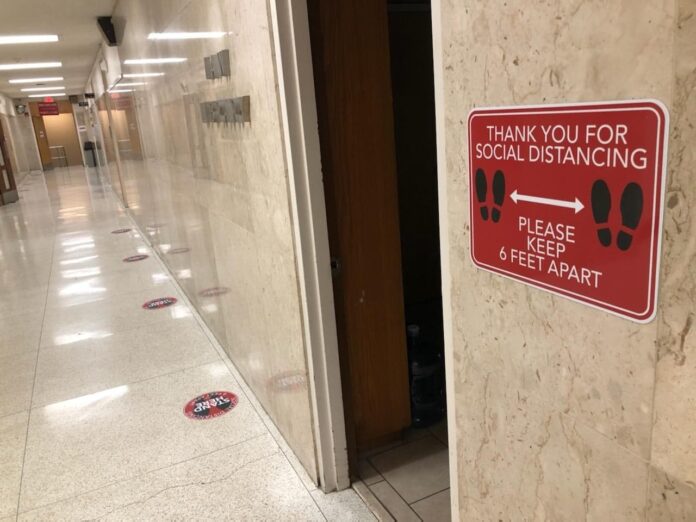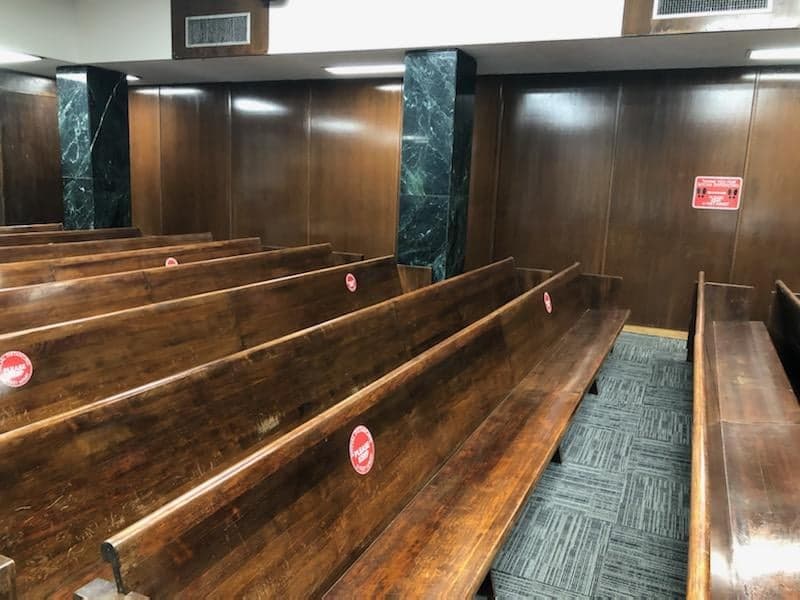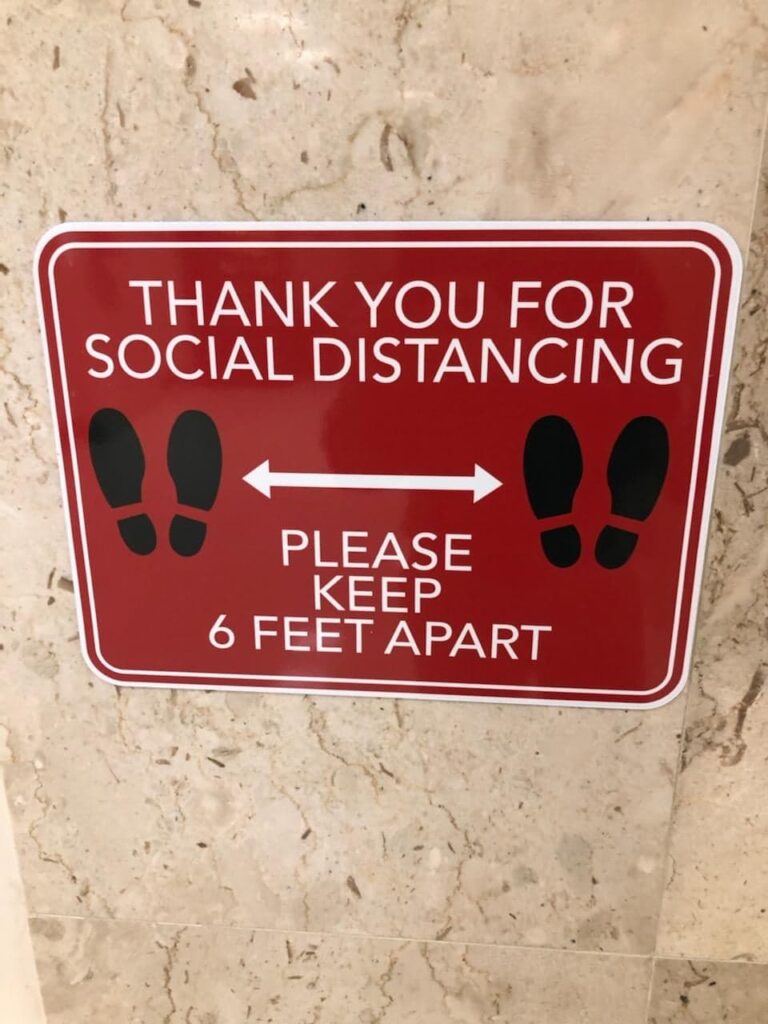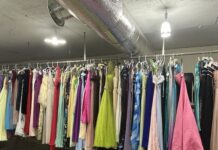
CULLMAN, Ala. – On Wednesday, May 13, the Alabama Supreme Court authorized presiding judges in each circuit across the state to reopen courtrooms for in-person proceedings other than jury trials, and to determine for themselves the schedules and regulations for reopening. Later the same day, after talking with other judges and court officers, Cullman County Presiding Judge Gregory Nicholas issued an order reinstating in-person proceedings beginning Monday, May 18.
Virtual proceedings will continue to be used when both parties agree to do so, and video conferencing technology will be available during in-person proceedings for those who are at higher risk of adverse health effects of COVID-19 by request, if they wish.
Jury trials are still on hold statewide until Sept. 14.
Nicholas’s order offers instructions including:
- People diagnosed with COVID-19 or exhibiting symptoms consistent with the condition may be denied entry to courtrooms and other judicial areas of the courthouse. If the person’s presence is required, they might wear a mask and follow extended social distancing, or appear via video conferencing technology.
- Maximum occupancy during the first phase of reopening will be determined based on the size of the particular room. Court bailiffs will keep counts, and will make arrangements with people excluded for them to return at other times if they are required to be present.
- Occupancy allowances –
- Court Clerk’s area: 12
- Hallway at Clerk’s payment/filing window: 4
- Waiting rooms near Clerk’s office: 4
- District Courtroom One: 16
- District Courtroom Two: 21
- Circuit Courtroom One: 30
- Circuit Courtroom Two: 16
Priority in courtroom occupancy will be given to judges, court staff, parties, counsel of record for each party and witnesses. Parents/guardians of minors or incapacitated adults may remain with them. Spectators will be allowed as space is available. Persons providing transportation to participants should wait outside. Seating will follow social distancing rules: seating will be at the ends of benches, and certain benches will be roped off to maintain distance. Members of the same family will be allowed to sit together. Staff will sanitize utilized spaces after proceedings.
Court notices, summons and subpoenas will include the judge’s name, specific courtroom, date and time for proceedings to make moving through the courthouse easier. Loitering or congregating in hallways will be prohibited.
During proceedings, witnesses will be placed on call as often as possible, so they will not have to sit in the courtroom or waiting rooms. Attorneys and their clients will be allowed to exchange notes, or short recesses can be taken for communication. Exhibits will be handled only by selected staff wearing gloves, and will not be handed to any other person.
Masks recommended
The order reads, “It is recommended that all individuals entering a courtroom, court clerk’s area, private judicial area, or public judicial area wear a mask for his or her own protection and for the protection of others. Masks shall be worn by courtroom bailiffs and any other person involved with a judicial proceeding as may be directed by the judge presiding over the proceeding. Masks worn into court proceedings shall not contain writing or any image that would be inappropriate for a courtroom setting. When mask use is required by this order or the order of a judge presiding over a judicial proceeding, the mask shall at all times completely cover the mouth and nostrils of the person who is wearing the mask.”
During proceedings, certain participants may be asked to remove their masks for purposes of identification, or when they cannot be heard clearly when speaking.
Personal protective equipment (PPE)
Staff will be issued masks and gloves to be worn when interacting with visitors, and Plexiglas screens will be used where appropriate.
Hand sanitizing stations
According to the order, “Hand sanitizing stations containing a solution that is at least 60% alcohol shall be set up at the entrance to each courtroom, in the court clerk’s area and at various locations within each public judicial area. Signs also shall be posted at conspicuous locations near the courtroom entrance, court clerk’s area, and other public judicial areas reminding individuals to wash their hands frequently and encouraging them to use hand sanitizer upon entering a courtroom, court clerk’s area, or any other public judicial area.”
Cleaning requirements
The order reads, “Frequently touched surfaces including, but not limited to, courtroom benches, tables, doorknobs, light switches, writing instruments used by the general public, seats, witness stands, computer keyboards, countertops at the court clerk’s filing and payment window, tables, chairs, and all surfaces frequently touched in courtrooms, the court clerk’s area, and other public and private judicial areas shall be sanitized by cleaning staff or court staff at regular intervals throughout the day, depending on use. At a minimum, each courtroom shall be sanitized according to CDC recommendations at the conclusion of each court proceeding and before individuals involved with the next proceeding are allowed entry into the courtroom. All chemicals used to sanitize and disinfect surfaces must meet standards adopted by the CDC or the Alabama Department of Public Health as adequate to kill infectious agents, including COVID-19.”
Stairways and elevators
Only one person or members of one household at a time may ride in elevators. The central staircase in the courthouse will be used for going upstairs; people may come down the staircases at each end of the building. Signage will be posted to direct visitors. The Cullman County Commission may alter these directions as needed.
Violations
According to the order, “An individual found to have willfully violated any provision of this order, including social distancing rules, may be held in contempt of court and punished accordingly.”
Copyright 2020 Humble Roots, LLC. All Rights Reserved.






















